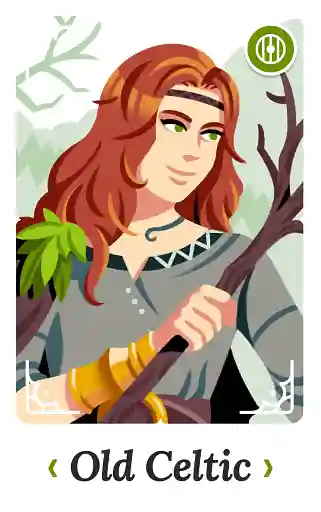The origins and history of Old English names
Old English names are steeped in history and often capture the essence of early medieval England’s culture. These names served as both identifiers and indicators of social standing, and were closely associated with the land, occupation, and family heritage. Often, a family's heritage or location was linked to their surname, like "Harrison" (son of Harry) or "Wood" (from the forest), while names like “Baker” or “Smith” linked families to their ancestor’s occupation.
Old English naming customs were also shaped by the Anglo-Saxon period, with names frequently combining two elements: one that refers to a quality or attribute (like “Ælf” meaning elf or supernatural being) and the other to an action or value. Names like “Edgar” (happy spear) or “Alfred” (wise counselor) combined these meaningful elements, often imparting a sense of strength or moral virtue.
Many Old English names, like “Edward” or “Alice”, have persisted over the ages, while others have vanished. Even if they are still treasured today, these names bear the weight of history and often represent medieval values of strength, wisdom, or faith.
So you want to create good Old English character names?
Naming Old English characters — whether for historical fiction, fantasy, or medieval drama — requires more than selecting something that sounds archaic. Going that little bit further to reflect the linguistic patterns, cultural values, and social structures of Anglo-Saxon England will leave you with character names that feel authentic and purposeful.
Here are a few tips for picking the perfect Old English name with our name generator:
- Incorporate Old English roots. Most Old English names are made up of two parts with different meanings. Look for names that reflect the traits and virtues that your character embodies.
- Pay attention to tradition and gender. Distinct gender traditions are frequently observed in Old English names. For males, popular names like “Leofric” (beloved king), and “Oswald” (god's power) conveyed strength, leadership, and divine favor. Female names however, reflected traits like bravery, joy, and nobility, such as “Ælfwynn” (elf joy), and “Wulfrun” (wolf's fame). These traditional names will help add authenticity to your characters by aligning with the gender-specific norms of Old English society.
- Reflect the time period and location. Old English names varied depending on the time period and region. Earlier Anglo-Saxon names were often more simple and direct, while names from the later Anglo-Norman period might be more complex or influenced by Latin. Choosing era-appropriate names will ensure your character feels rooted in the right time and location.
So whether you're crafting an Anglo-Saxon epic or adding historical depth to fantasy characters, understanding these naming principles will ground your work in linguistic authenticity.
Want more name ideas? Explore our full collection of historical name generators or dive into our guide to creating believable characters across different time periods!
10 Old English names for inspiration
Want to get ideas straight from the source? You're in luck. Here are some of our favorite Old English character names of all time:
|
Old English names |
Meaning |
Gender |
|
Clara |
Clear, bright, famous |
Female |
|
Edith |
Prosperity, wealth |
Female |
|
Arthur |
Bear |
Male |
|
Alfred |
wise counseller |
Male |
|
Dorothy |
God’s gift |
Female |
|
Lou |
Famous in battle |
Male |
|
Beverly |
Beaver stream |
Male |
|
Oswald |
God, rule |
Male |
|
Inez |
Pure |
Female |
|
Blythe |
Joyful |
Female |
Looking for more good Old English names?
Feel free to use any of the names that this Old English name generator provides. Be sure to tell us the success story at service@reedsy.com! And if you find that you still haven’t found the right Old English name, the rest of the Internet’s got you covered. Here are some of our other favorite Old English name generators on the web:
Or if you think that generators are fun and all — but that you’d rather create your own Old English name? Great 👍 Head to this post, which is all about naming a character.






